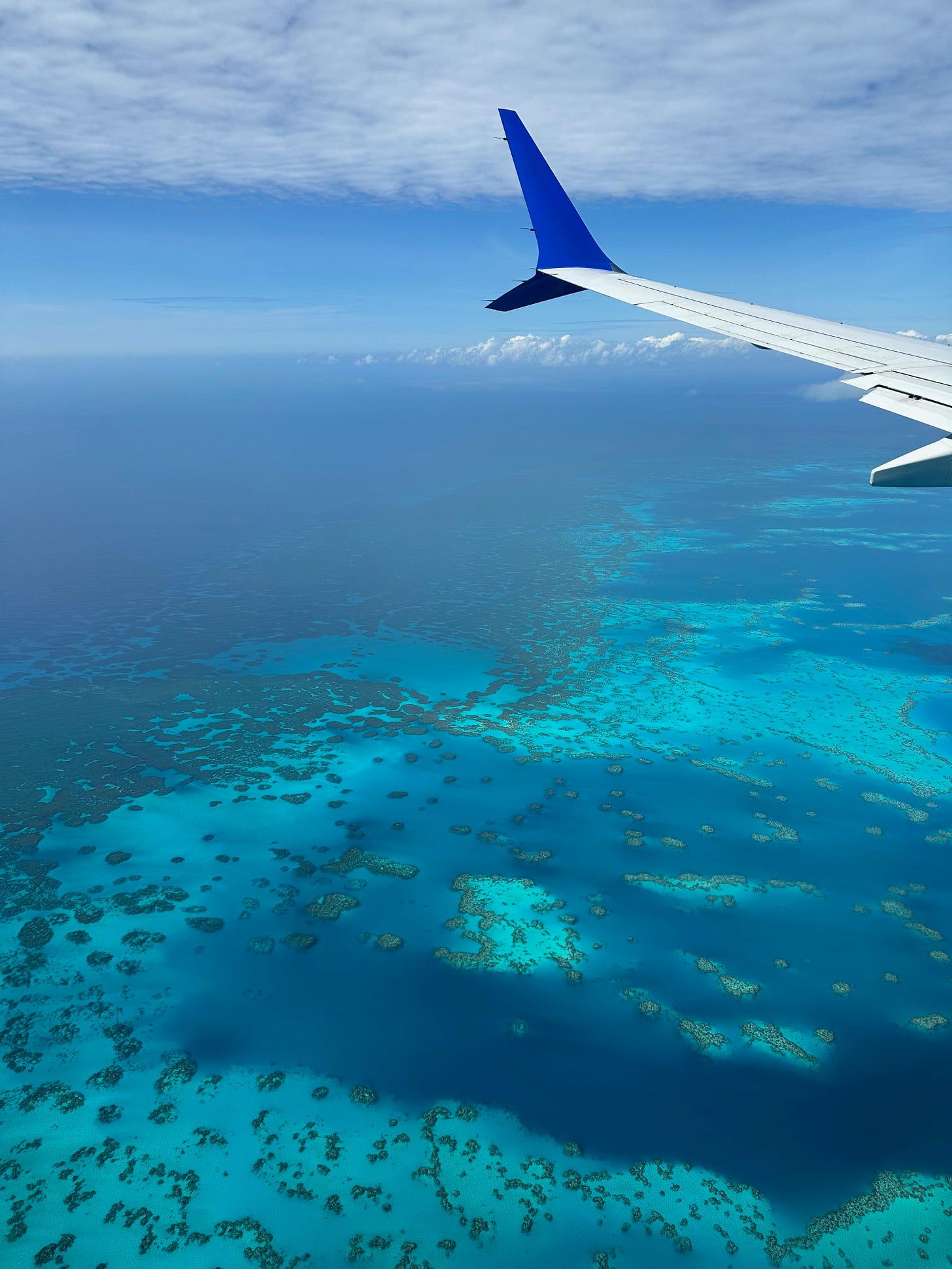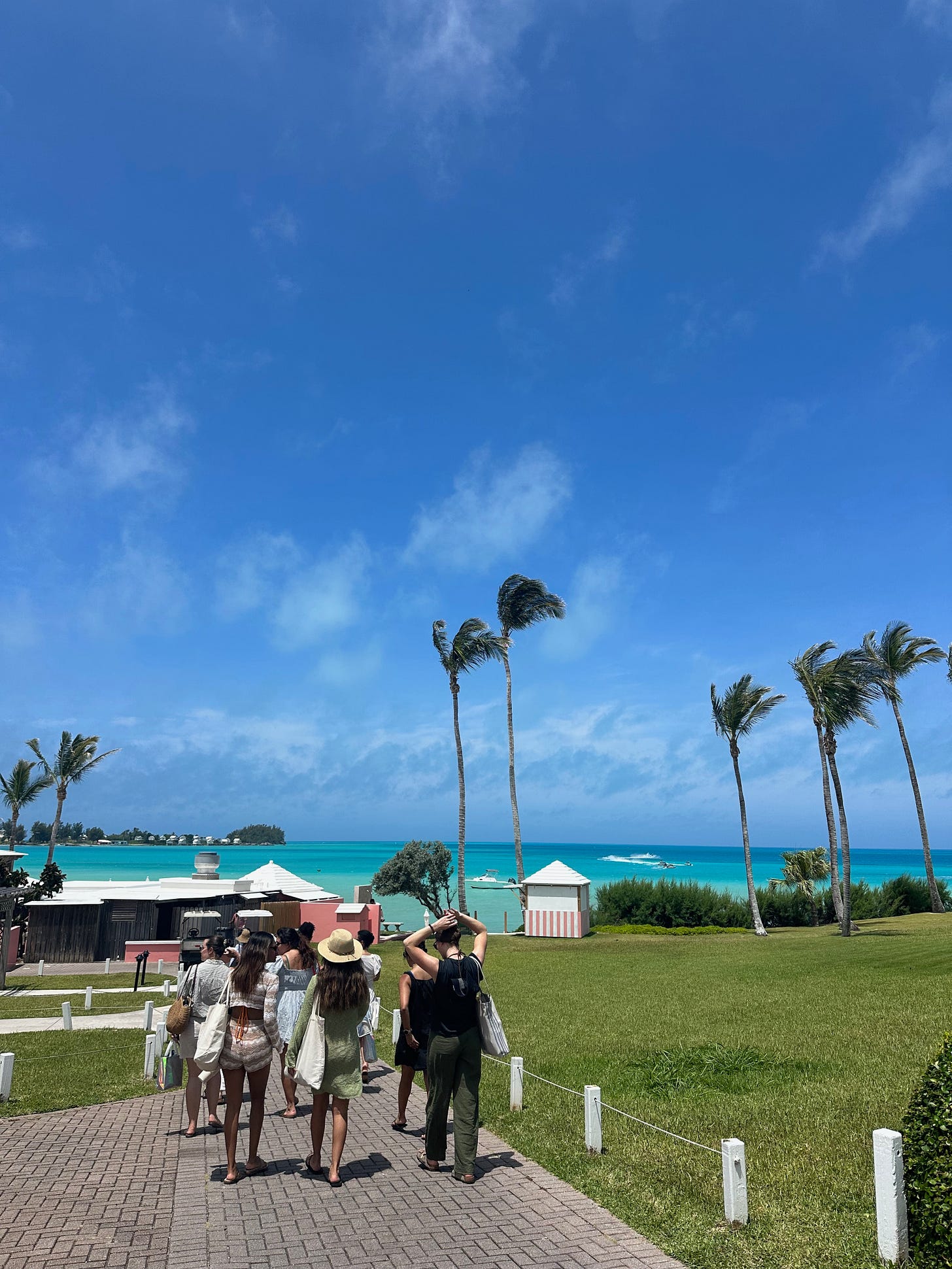Supporting Your Hormone Health While Traveling
Try these hormone-supportive travel tips next time you fly!
I didn’t travel much as a kid. While I resented this then, I get it now: I’m one of seven children, and my parents aren’t millionaires. Even a short weekend getaway would’ve required a small fortune and a heroic amount of effort. It hardly could’ve been worth it.
As a result, having to wait to travel — to fly, in particular — has led me to, well, perhaps overdo it as an adult. I’ve jumped at the opportunity to venture off to new places as often as my schedule (and my budget) will allow. In the summer months, especially, I swear I can feel the magnetic pull of new beaches, new cities, and new charming towns begging to be discovered and explored. Maybe you feel it too — summer is the peak season for travel, after all.
Lately, though, I’ve started to notice a shift. Maybe I’m getting older, or maybe I’m just more in tune with my body — either way, I’ve become much more aware of how physically taxing travel can be.
Tell me: Do you often encounter excess fatigue or bloating on trips? Do you get headaches? Do you always seem to come down with a cold the moment you get home? Does your period get delayed? If not, count yourself among the lucky ones — or perhaps the smarter ones that simply figured out how to travel well long before I did.
Traveling can be challenging when it comes to balancing hormone health, especially when flying. The combination of dehydration, stress, and disrupted routines can take a real toll — particularly if you deal with something like endometriosis. But I’ve recently picked up a few strategies that have made a real difference for me, and I hope they can help you, too.
Hormone-Supportive Travel Tips
As I’ve researched this topic and implemented some of these strategies myself on a recent trip, I’ve noticed a clear throughline: the more your travel routine mirrors your home routine — especially if that home routine supports your hormonal health — the smoother your trip and post-travel recovery will be. If nothing else, take that with you as a great place to start.
Here are some more detailed tips:
1. Track Your Cycle Phase
Knowing which phase(s) you’ll be in ahead of time can help you anticipate energy levels, stress sensitivity, and dietary needs going into your trip.
For instance, during your luteal phase (pre-period), you may experience lower energy and feel more prone to stress. In that case, opt for slower mornings and fewer outings each day. During your follicular phase (post-period), on the other hand, you may have higher energy and can better handle a packed schedule and more active ventures.
If you’re in control of your own itinerary, small adjustments that cater to the phases in your cycle can go a long way in helping you stay both energized and relaxed during your trip.
2. Stay Hydrated
Airplane cabins are notoriously dry, which can dehydrate you and disrupt key hormones like cortisol and estrogen. Dehydration can also contribute to bloating, fatigue, and other digestive issues. Of course, that’s the last thing you want right before — or during — your trip.
The solution will come as no surprise: Drink your water!
If you really want to set yourself up for success, pay attention to your hydration before even leaving on your trip. For travel days, pack an empty reusable bottle to fill up at the airport, or if you forget, buy a water bottle first thing once you get through security.
Both caffeine and alcohol can increase cortisol levels, disrupt sleep, and dehydrate you, too — especially during your luteal phase when your body is more sensitive to stress. If you drink a lot of coffee or wine regularly at home, try easing off of it in the days leading up to your trip and on travel days. Try sipping on some herbal teas like ginger, peppermint, or chamomile instead to aid in your digestion and help you relax.
3. Pack Hormone-Friendly Snacks and Be Mindful During Meals
Airport food options are often processed and high in sugar and salt, which can negatively impact hormone levels. Try preparing by packing snacks that support your hormonal health, like nuts, seeds, dark chocolate, protein bars, and fruits. These choices provide essential nutrients and can help maintain stable blood sugar levels on travel days.
During the rest of the trip, be mindful about your meals: Are you getting enough protein? Are you eating any veggies or healthy fats? Ensure you incorporate these into your meals during travel — particularly during breakfast, so you can set your day up for success.
An important note here: I love food of all kinds, and one of my greatest joys while traveling is enjoying the local cuisine. If I’m in Spain, I’m going to be drinking cava and eating papas bravas. In Paris, I’ll eat more than my fair share of croissants and baguettes. If I’m in Hawaii, you can bet I’ll be drinking piña coladas on the beach.
The key here, for me, is striking a balance between enjoying these things while also getting the more nutrient-dense food I need. The easiest way for me to do this is to focus on hormone-healthy foods during breakfast and lunch, then opt for whatever sounds best to me for dinner and dessert.
4. Support Your Circadian Rhythm
Hormones like melatonin and cortisol are tethered to your internal clock, and crossing time zones or using screens at odd hours can throw everything off.
A great tip (from Alana!): If you’re crossing time zones, try adjusting your bedtime in 15 to 30-minute increments each day starting a week or so before you travel. This will help your body ease into a new rhythm and be more well adjusted to the new time zone once you’ve arrived at your final destination.
To minimize jet lag after arrival, get morning sunlight on the first day to help reset your circadian clock. If your travel schedule allows it, allot extra time for your bedtime and morning routines to ensure you get ample rest and enough sleep, particularly at the start of your trip.
5. Move Often
Sitting too long — especially on flights — can reduce circulation and increase inflammation, which is especially problematic during menstruation or ovulation. To combat this, walk every couple of hours, if you can. This may mean doing a few laps around the airport or getting up once or twice on the airplane itself. Doing in-seat exercises like ankle circles, knee lifts, and shoulder rolls can be a big help, too.
On your trip, try to strike a balance between movement and rest. I’m often walking around all day when I’m in a new city, which I believe is an excellent — and underrated— form of exercise!
As always, though, make sure you’re listening to your body and resting when you need to.
6. Listen to Your Body — Always
Hormonal health is cyclical, and so is your energy. In my experience, travel can amplify those natural ups and downs, and that’s okay! Your body is always communicating with you, so if you feel off, honor it — even if your travel brain is telling you to do more.
Related Articles
On Sleep by Mira Hansen
Your Perfume Choices Impact Your Hormones & Your Fertility: Here's What You Can Do by Alana M. Abernethy
6 Health Practices That Lowered My Stress to Support Balanced Hormones by Alana M. Abernethy





Mira, your writing is so magical to me. The way you interweave storytelling, personal gems, and informative tips feels so cozy to me like I’m chatting with one of my good friends. Thank you for this piece🙏🏽